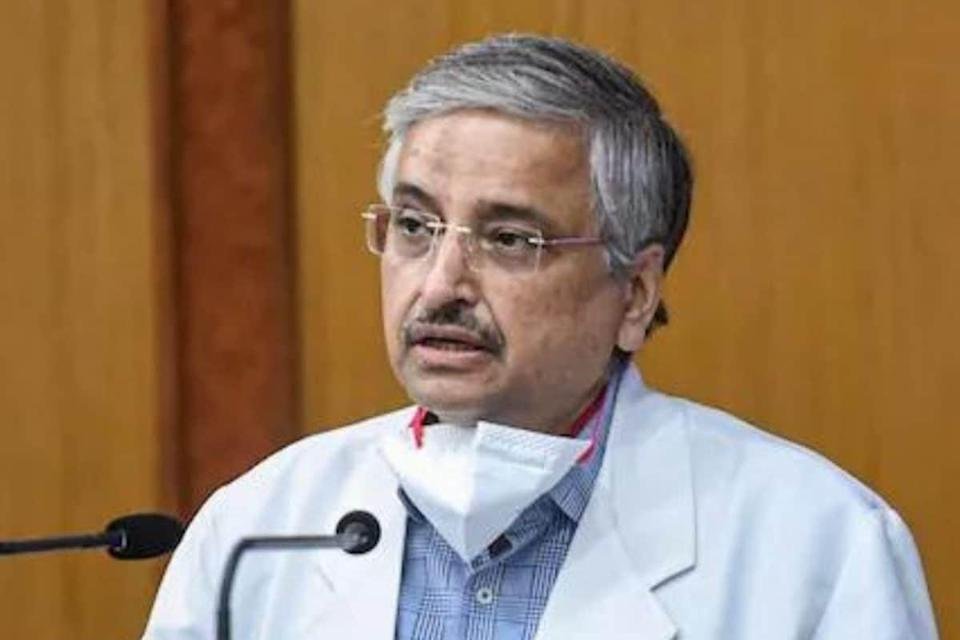AIIMS chief Dr Randeep Guelleria said the oomicron variant of COVID-19 has 30+ mutations in the spike protein region, may bypass vaccines

New Delhi: The new omicron variant of the coronavirus has over 30 mutations in the spike protein region, giving it the potential to develop an immunoescape mechanism, and thus to critically evaluate the efficacy of vaccines against it. Required, AIIMS chief Dr. Randeep Guleria has said. The presence of the spike protein facilitates the entry of the virus into the host cell and is responsible for making it transmissible and causing infection.
“The new version of the coronavirus has more than 30 mutations in the spike protein region and therefore has the potential to develop an immunosuppressant mechanism. Most vaccines [work] by producing antibodies against the spike protein, so many mutations in the spike protein region have been shown to contain COVID-19.” The effectiveness of the 19 vaccines may go down,” Dr Randeep Guelleria, Director, AIIMS told PTI.
In such a scenario, there is a need to “critically” evaluate the effectiveness of vaccines, including those in use in India, he said. He said future course of action will depend on what more data shows on its transmissibility, virulence and immunity. Omicron variant: Those returned to Madhya Pradesh from abroad in last one month to undergo COVID-19 test, says CM Shivraj Singh Chouhan.
Officials said the Indian SARS-CoV-2 genomic consortia INSACOG is closely tracking the new variant B.1.1.1.529 of COVID-19 and its presence in the country is yet to be ascertained. Dr Guleria stressed on the need to have very vigilant and aggressive surveillance both for international travelers and in the area where there has been a sudden increase in the number of cases.
“In addition, we must ask everyone to follow Coivd-appropriate behavior religiously and not to let our guard down. Also, ensure that people get both doses of the vaccine and those who haven’t yet. They should be encouraged to come forward. To take,” he said.
The new, and potentially more infectious version, was first reported from South Africa to the World Health Organization (WHO) on 24 November. It has since been recognized in Botswana, Belgium, Hong Kong and Israel, among other countries.
On Friday it was named ‘a variant of the concern’ by the WHO, which named it Omicron. ‘A form of anxiety’ is the WHO’s top category of worrying COVID-19 stress. The Center on Thursday asked all states and union territories to conduct rigorous screening and testing of all international travelers arriving or departing from South Africa, Hong Kong and Botswana.
In a letter to the Additional Chief Secretaries/Principal Secretaries/Secretary (Health) of all States and Union Territories, Union Health Secretary Rajesh Bhushan asked them to ensure that the samples of passengers who test positive are sent to the designated Genome Sequencing Laboratories immediately.

